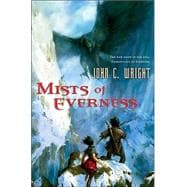
|
9 | (12) | |||
|
21 | (10) | |||
|
31 | (16) | |||
|
47 | (12) | |||
|
59 | (18) | |||
|
77 | (12) | |||
|
89 | (8) | |||
|
97 | (10) | |||
|
107 | (14) | |||
| 10 The Arrows of the Sun | 121 | (12) | |||
| 11 Crime Does Not Pay! | 133 | (8) | |||
| 12 The Salvation of Lemuel | 141 | (16) | |||
| 13 In the Court of the Faerie King | 157 | (20) | |||
| 14 The Storm Gathers | 177 | (14) | |||
| 15 The Pendragon's Daughter | 191 | (18) | |||
| 16 A Dying of the Light | 209 | (14) | |||
| 17 That Strong, Unmerciful Tyrant | 223 | (12) | |||
| 18 The Name of the Raven | 235 | (26) | |||
| 19 Darkness, Darkness Covers All | 261 | (14) | |||
| 20 The Last Horn Call | 275 | (20) | |||
| 21 Morningstar | 295 | (14) | |||
| 22 The Sword of the Just | 309 | (12) | |||
| 23 The Wand of Truth | 321 | (10) | |||
| 24 The Last Guardian | 331 | (17) | |||
| Appendix: The List of the Wardens | 348 |
The New copy of this book will include any supplemental materials advertised. Please check the title of the book to determine if it should include any access cards, study guides, lab manuals, CDs, etc.
The Used, Rental and eBook copies of this book are not guaranteed to include any supplemental materials. Typically, only the book itself is included. This is true even if the title states it includes any access cards, study guides, lab manuals, CDs, etc.